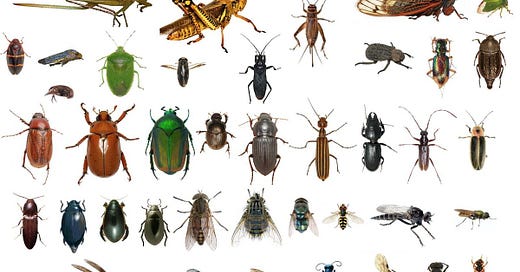Huemer on Ethical Treatment of Animals (Including Bugs)
Mike Huemer, my favorite philosopher, responded to yesterday’s post on Facebook. Huemer’s words, reprinted with his permission:
I don’t think the best way of determining whether x is true is by seeing whether x-advocates are hypocritical or morally flawed. (Btw, on this criterion, the slavery-defenders who knew Thomas Jefferson would presumably have declared that slavery is probably right, since even Jefferson held slaves.)
Rather, the best way to find out whether x is true is to just look at the arguments for and against x, especially if those arguments are simple and easy to find.
The arguments on ethical vegetarianism are simple and easily found. It seems wrong to cause extreme amounts of pain and suffering for the sake of minor benefits to oneself. If you just look at some of the things that go on on factory farms, you’re going to be horrified. If you look, I think you are going to find it extremely difficult to say, “Oh yeah, that seems fine.”
If
you think it is not wrong to inflict severe suffering as long as the victim of the suffering is stupid, then you’d have to say that it is permissible to torture retarded people for fun. Etc. (I don’t have anything to add to the standard arguments.) You also have to explain why pain isn’t bad when the victim is stupid.
Now, what is the proposed response to the argument? The fact that people kill many insects is supposed to be evidence that . . . pain isn’t really bad? That it’s not really wrong to cause lots of bad things for the sake of minor benefits to oneself? But how could the number of insects that people kill be evidence for any of these things?
The blog post even seems to suggest that it’s impossible that it’s wrong to cause pain to stupid creatures. That is, that we know that pain is only bad if you’re smart. But really, could that plausibly be said to be something that we know? How would that be? Is there some proof of that proposition?
Maybe the suggestion is that it’s self-evident that pain is only bad if you’re smart. But then, rather than trying to draw inferences about this by looking at the behavior of PETA-members, etc., it seems like we could just introspect and see whether that’s self-evident. When I do, I see that it’s not self-evident (indeed, it isn’t even plausible). I don’t have to make any inferences or look at anyone else’s behavior, since I can just look and see.
The post appeared first on Econlib.





